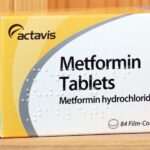Does Ultima Replenisher Cause Diarrhea?

Going to the bathroom, having a bowel movement, pooping – no matter what you call it, stool is a regular part of your life. However, sometimes this process of getting waste out of your body changes. When you have loose or watery stool, it’s called diarrhea. This is a very common condition and usually resolves without intervention.
Diarrhea can happen for a wide variety of reasons and it usually goes away on its own in one to three days. When you have diarrhea, you may need to quickly run to the bathroom with urgency and this may happen more frequently than normal. You may also feel bloated, have lower abdominal cramping and sometimes experience nausea.
Although most cases of diarrhea are self-limited (happening for a fixed amount of time and steady level of severity), sometimes diarrhea can lead to serious complications. Diarrhea can cause dehydration (when your body loses large amounts of water), electrolyte imbalance (loss of sodium, potassium and magnesium that play a key role in vital bodily functions) and kidney failure (not enough blood/fluid is supplied to the kidneys). When you have diarrhea, you lose water and electrolytes along with stool. You need to drink plenty of fluids to replace what’s lost. Dehydration can become serious if it fails to resolve (get better), worsens and is not addressed adequately.
What’s the difference between normal diarrhea and severe diarrhea?
There are actually several different ways to classify diarrhea. These types of diarrhea include:
Acute diarrhea: The most common, acute diarrhea is loose watery diarrhea that lasts one to two days. This type doesn’t need treatment and it usually goes away after a few days.
Persistent diarrhea: This type of diarrhea generally persists for several weeks – two to four weeks.
Chronic diarrhea: Diarrhea that lasts for more than four weeks or comes and goes regularly over a long period of time is called chronic diarrhea.
What is Ultima Replenisher?
Ultima Replenisher is a natural electrolyte drink that is gluten-free, sugar-free, and most importantly, free of any artificial ingredients. Ultima is made with 6 electrolytes plus support minerals, real fruit flavor extracts, plant-based colors and sweetened with organic stevia leaf – without sugar, carbs or calories! It’s a good choice for healthy hydration and replenishment to help you perform at your best.
Electrolytes drinks like Ultima Replenisher contain essential minerals that your body needs to stay hydrated before, during, and after exercise. But they do more than that. Electrolytes also support our body’s vital functions, such as muscle contraction (including the heart), blood pressure, nerve signaling, and much more.
Does Ultima Replenisher cause diarrhea?
Yes, Ultima Replenisher can cause diarrhea in some people. The drink is sweetened with organic stevia leaf, a plant originally native to Paraguay and Brazil but is now also grown in Japan and China. It is used as a non-nutritive sweetener and herbal supplement. A non-nutritive sweetener is one that contains little to no calories. Stevia is used as a healthful alternative to added sugar in many meals and beverages.
However, people with sensitivity to sugar alcohol may experience side effects such as bloating, abdominal cramps, nausea, and diarrhea, though one type of sugar alcohol, erythritol, poses less risk of symptoms than others.
In 1991, the FDA refused to approve stevia as a sweetener as an additive in foods. However, in 2008 after the purification process was developed and patented by Coca-Cola, the FDA approved the stevia extracts as GRAS.
Multiple global regulatory bodies have now determined that high-purity stevia extract is safe for consumption by the general population within the recommended levels, including children. Governing bodies have established an Acceptable Daily Intake (ADI) of 4 milligrams per kilogram (kg).
These organisations include the Food and Agriculture Organization of the United Nations (FAO), the World Health Organization (WHO), and the FDA. Stevioside was found to be nontoxic in acute toxicity studies. These studies used a variety of laboratory animals. No major contraindications, warnings, or adverse reactions have been documented.



